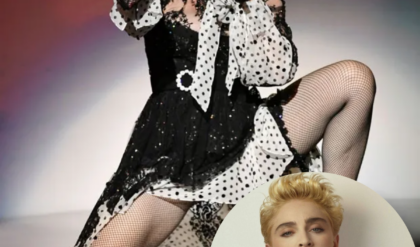Unveiling the Alleged Shadiness of Oprah Winfrey: A Critical Examination
In the ever-evolving landscape of Hollywood, where personalities rise and fall amidst a whirlwind of fame, controversy, and influence, few figures have garnered as much attention and scrutiny as Oprah Winfrey. Renowned for her groundbreaking talk show, entrepreneurial ventures, and philanthropy, Oprah has become a cultural icon with a profound impact on media and society. However, behind the veil of success and benevolence, there are persistent allegations and critiques regarding her conduct, particularly concerning her perceived shadiness as detailed by comedian Katt Williams and echoed by various critics and observers.
Oprah Winfrey’s ascent to prominence began with her acclaimed daytime talk show, The Oprah Winfrey Show, which aired from 1986 to 2011. The show propelled her into a position of immense influence, transforming her into a household name synonymous with empowerment, self-improvement, and celebrity interviews. Her ability to connect with audiences on a personal level, combined with her knack for addressing sensitive and taboo topics, cemented her status as a cultural arbiter.
Beyond television, Oprah’s entrepreneurial endeavors extended into publishing, film production, and the launch of her own television network, OWN. Her Book Club became a literary phenomenon, catapulting numerous authors to bestseller status and reshaping the publishing industry. Moreover, her philanthropic efforts, notably the Oprah Winfrey Leadership Academy for Girls in South Africa, underscored her commitment to social causes and education.

Despite her accolades and achievements, Oprah Winfrey has not been immune to criticism. One of the most vocal detractors is comedian Katt Williams, whose candid remarks about Oprah have sparked controversy and debate. Williams has accused Oprah of being the “most shady person in Hollywood,” alleging various instances where he perceives her actions as manipulative or disingenuous.
Williams has pointed to Oprah’s interviewing style as evidence of her alleged shadiness. He contends that Oprah often manipulates interviewees by exploiting their vulnerabilities or sensationalizing their stories for ratings and public sympathy. This approach, according to Williams, undermines the authenticity of the interactions and diminishes the integrity of the subjects involved.
Another contentious issue raised by Williams is Oprah’s relationship with disgraced Hollywood producer Harvey Weinstein. Weinstein, whose career unraveled amidst numerous allegations of sexual misconduct, had been a prominent figure in the entertainment industry for decades. Williams and other critics have questioned Oprah’s initial support of Weinstein and her subsequent distancing from him following the scandal. This sequence of events has fueled speculation about Oprah’s motivations and judgment in associating with Weinstein.
Williams has also criticized Oprah for what he perceives as a tendency to disproportionately scrutinize and criticize black celebrities while sparing their white counterparts. This allegation taps into broader conversations about race, representation, and accountability within the entertainment industry. Critics argue that Oprah’s influence as a black media mogul entails a responsibility to foster a fair and equitable dialogue around race-related issues, which some believe has been inconsistent in her approach.
In response to these allegations, supporters of Oprah Winfrey assert that criticisms leveled against her are often exaggerated or taken out of context. They highlight her extensive philanthropic work, advocacy for social justice causes, and role as a trailblazer for women and minorities in media. Moreover, they argue that Oprah’s success has made her a target for unfair scrutiny and jealousy within an industry known for its cutthroat competitiveness.

The debate surrounding Oprah Winfrey’s alleged shadiness underscores larger questions about celebrity culture, media ethics, and the responsibilities that accompany fame and influence. As a cultural icon, Oprah’s actions and choices reverberate far beyond the realm of entertainment, shaping public perceptions and influencing societal norms.
Critics argue that figures like Oprah Winfrey, with their vast reach and influence, have a duty to uphold ethical standards in their professional conduct. This includes fostering honest and empathetic dialogue with guests and audience members alike, while also recognizing the potential consequences of their actions on public discourse.
The scrutiny faced by Oprah Winfrey raises important questions about accountability and transparency in the public eye. As a public figure, every decision and statement made by Oprah is subject to intense scrutiny, demanding a level of accountability that extends beyond personal success or financial gain.
Oprah Winfrey’s impact on cultural representation and diversity in media cannot be overstated. As one of the most influential black women in entertainment history, her achievements have shattered barriers and paved the way for future generations of creators and entrepreneurs from diverse backgrounds.
In conclusion, the allegations of shadiness surrounding Oprah Winfrey present a complex and multifaceted portrait of a media mogul whose influence spans decades. While her achievements and contributions to society are undeniable, criticisms from figures like Katt Williams highlight ongoing concerns about integrity, accountability, and the ethical responsibilities of celebrities in the public eye.
As the conversation continues to evolve, one thing remains clear: Oprah Winfrey’s legacy will be defined not only by her professional accomplishments but also by how she navigates the complexities of fame, scrutiny, and societal expectations in an ever-changing world.




